A lot of misconceptions surround the African continent and people of Africa. The second largest continent is home to countless unique cultures, languages and landscapes.
It is also pertinent to understand that Africa is not a country but a large continent consisting of 54 countries that are diverse culturally and geographically.
There are a lot of things you need to know about Africa as a continent; we would be enumerating four important things you must know about the African continent.
SECOND LARGEST CONTINENT
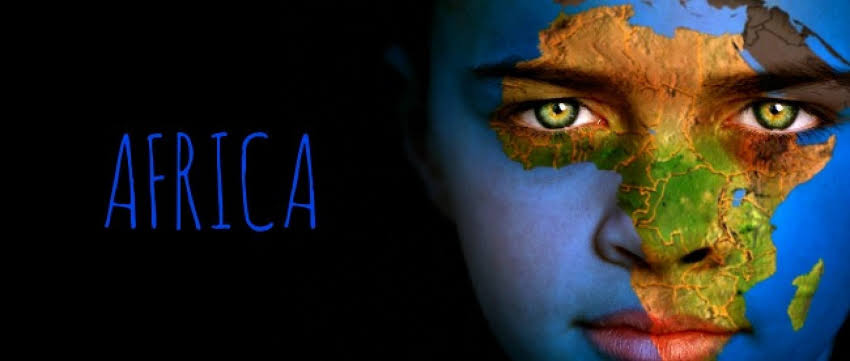
African continent is the world’s oldest populated area. Africa is the second most populous continent with about 1.1 billion people or 16% of the world’s population. Africa is the world’s second largest continent covering about over 30 million square kilometers. The Sahara is the largest desert in the world and is bigger than the continental USA.
HOTTEST CONTINENT

Africa is the world’s hottest continent with deserts and drylands covering 60% of land surface area; Kalahari and Sahara deserts. Africa is the world’s second driest continent (after Australia).
WORLD BEST DESTINATION CENTRES
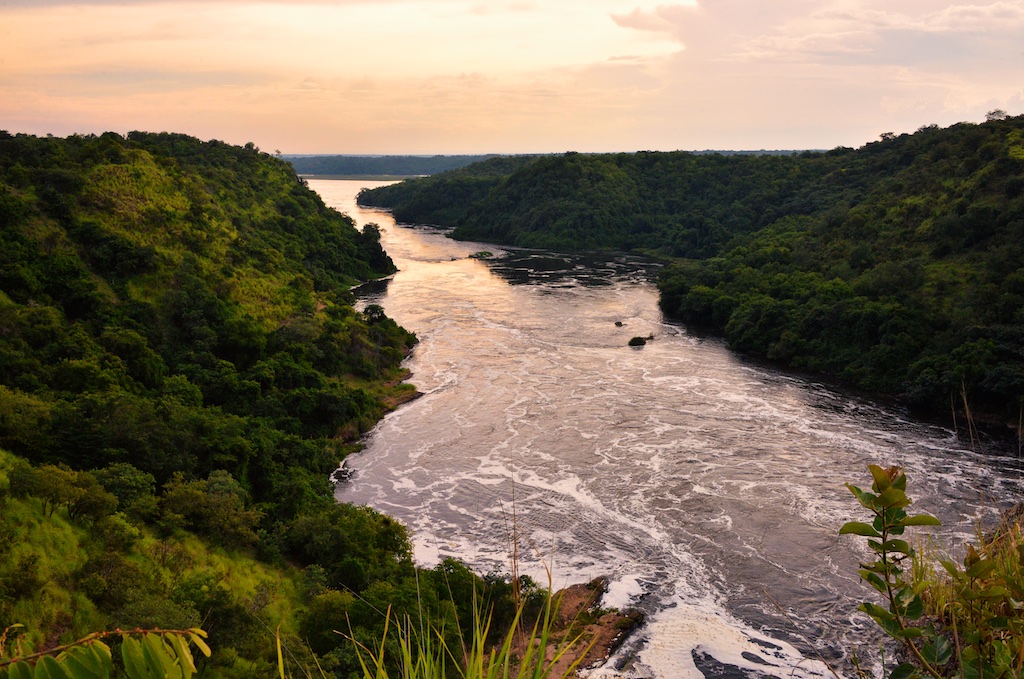
Africa is still one of the best travel destinations in the world. Africa has numerous tour sites and destinations; ranging from wildlife parks, national museums, deserts, renowned archaeological centres; Africa offers truly memorable experiences. Popular tourist locations are São Tomé e Principe, Seychelles, Zanzibar, Rwanda, Reunion Island, Egypt, Nigeria and Morocco.
Located on the Zimbabwe and Zambia border; the largest waterfall in Africa is the Victoria Falls. It has a height of 355 feet and the width of the water fall runs into almost a mile.
MINERAL RESOURCES

Around 30% of the earth’s remaining mineral resources are in Africa. These include uranium, platinum, diamonds, cobalt, gold, oil and gas reserves. Nigeria is the fifth largest exporter of oil, ahead of Iraq and Kuwait. Nickel and uranium can be found in Burundi, titanium in Gambia, and diamonds in Angola, Botswana, Central African Republic and Democratic Republic of Congo. It is interesting to note that almost half of the gold ever mined on earth has come from a single place – the Witwatersrand, in South Africa. The African continent’s mining is well known as the continent produces at least 50% of the diamonds and gold in the whole world. The rest of the countries around the world contribute to the remaining 50% of the production of these precious stones and metal.
The African Continent Is The Birth Place Of Civilization
According to the Encyclopedia; earliest stages of human evolution are believed to have begun in Africa about seven million years ago as a population of African apes evolved into three different species; gorillas, chimpanzees, and humans. Protohumans, as early humans are known, evolved about 2.5 million years ago and had larger brains and stood nearly upright.
 Humans spread from prehistoric Africa to populate much of the world by 10,000 b.c.e. Some of the world’s first great empires originated in northern Africa around 4000 b.c.e., when Egypt began to develop. As Egyptian society began to decline around 1000 b.c.e., people living further south along the Nile River started building a culturally independent society. This society developed into the first black African empire; the Kushite/Meröe empire, which lasted roughly from 800 b.c.e. to 400 c.e. Although the Kushite/Meröe civilization was influenced by Egypt, it developed its own culture, with unique art practices and a writing system. Little is known about the lifestyles and habits of these early African cultures. Some research has been conducted into these past cultures but more is ongoing.
Humans spread from prehistoric Africa to populate much of the world by 10,000 b.c.e. Some of the world’s first great empires originated in northern Africa around 4000 b.c.e., when Egypt began to develop. As Egyptian society began to decline around 1000 b.c.e., people living further south along the Nile River started building a culturally independent society. This society developed into the first black African empire; the Kushite/Meröe empire, which lasted roughly from 800 b.c.e. to 400 c.e. Although the Kushite/Meröe civilization was influenced by Egypt, it developed its own culture, with unique art practices and a writing system. Little is known about the lifestyles and habits of these early African cultures. Some research has been conducted into these past cultures but more is ongoing.
Cradle of Mankind
According to existing archaeological and fossil evidence, however, the Cradle of Humankind(originally known as Cradle of Mankind) is the Afar Triangle in East Africa; which is often referred to as the Cradle of Humanity.
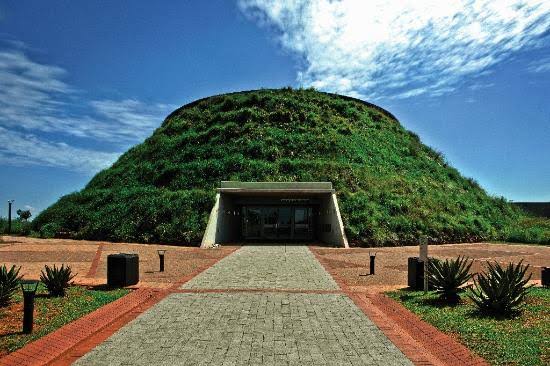 However, for a long time, East Africa has been considered the place of origin of the earliest hominins and lithic technology; because up to now, very little was known about the first hominin occupation and activities in the north of the continent. Two decades of field and laboratory research directed by Dr. Sahnouni have shown that ancestral hominins actually made stone tools in North Africa that are near contemporary with the earliest known stone tools in East Africa dated to 2.6 million years. Positing that the cradle of mankind is the whole of Africa.
However, for a long time, East Africa has been considered the place of origin of the earliest hominins and lithic technology; because up to now, very little was known about the first hominin occupation and activities in the north of the continent. Two decades of field and laboratory research directed by Dr. Sahnouni have shown that ancestral hominins actually made stone tools in North Africa that are near contemporary with the earliest known stone tools in East Africa dated to 2.6 million years. Positing that the cradle of mankind is the whole of Africa.
The Length And Breadth Of The African continent Is Almost The Same
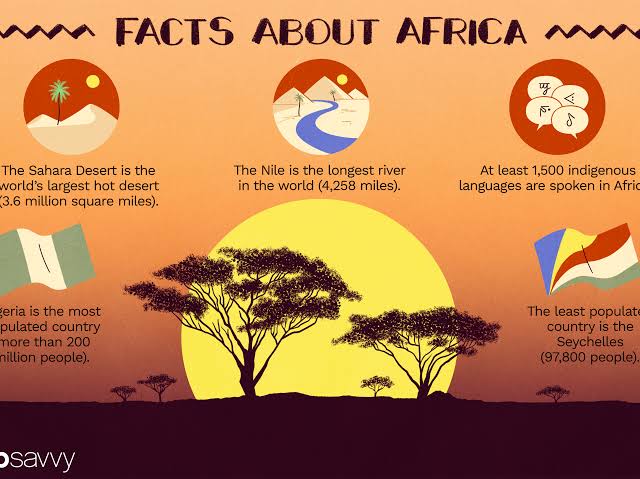 One of the most interesting facts about the African continent is that the length and breadth of this continent are about equal. Africa measures around 4,660 from north to south and about 4,660 from east to west.
One of the most interesting facts about the African continent is that the length and breadth of this continent are about equal. Africa measures around 4,660 from north to south and about 4,660 from east to west.
Divided By The Equator
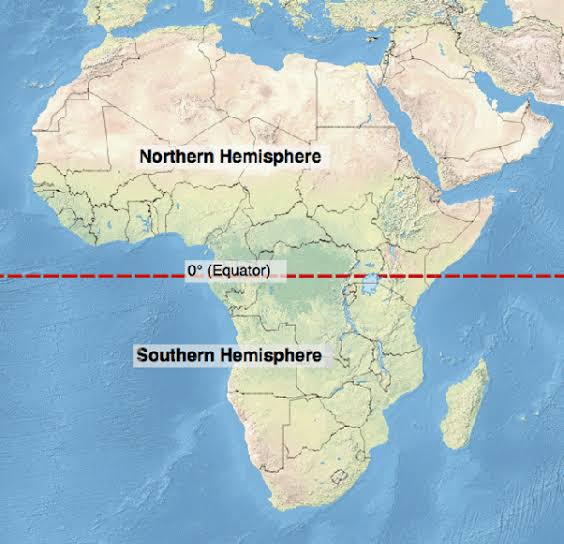 The Equator goes around 2,500 miles from the west to the east of the African continent thus dividing this continent into two separate halves; the north and south. The equator also It passes through many of the African nations such as Congo, Somalia, Uganda as well as Kenya.
The Equator goes around 2,500 miles from the west to the east of the African continent thus dividing this continent into two separate halves; the north and south. The equator also It passes through many of the African nations such as Congo, Somalia, Uganda as well as Kenya.
The African continent is home to the longest river in the world
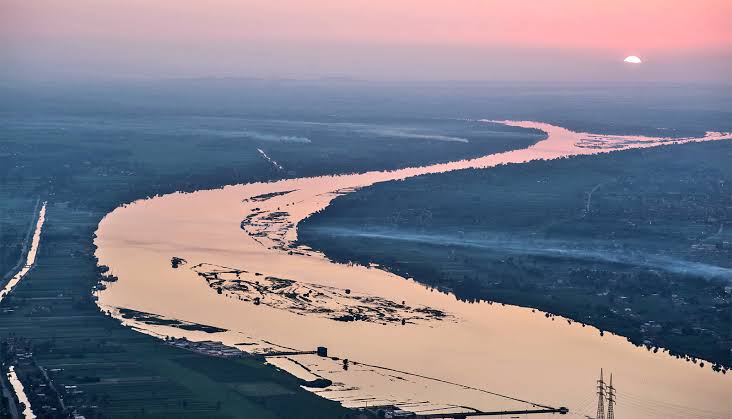 Africa is also the home of the longest river in the world which is the River Nile; it runs for around 4,150 miles before it meets the ocean. It flows through several African countries such as Ethiopia, Sudan, Uganda as well as Egypt thus making the land extremely fertile.
Africa is also the home of the longest river in the world which is the River Nile; it runs for around 4,150 miles before it meets the ocean. It flows through several African countries such as Ethiopia, Sudan, Uganda as well as Egypt thus making the land extremely fertile.
The Largest Canyon And The Fastest Animals
 South Africa is the home to the ‘largest green canyon in the world’, also known as the Blyde River Canyon, this is also the 3rd largest Canyon in the world. The African continent also boasts of the best flora and fauna in the entire world. It has the most flourishing wildlife in the entire world. It is also home to some of the fastest animals on land such as the cheetah, wildebeest, gazelle and lion.
South Africa is the home to the ‘largest green canyon in the world’, also known as the Blyde River Canyon, this is also the 3rd largest Canyon in the world. The African continent also boasts of the best flora and fauna in the entire world. It has the most flourishing wildlife in the entire world. It is also home to some of the fastest animals on land such as the cheetah, wildebeest, gazelle and lion.
Also Check out some amazing facts about ancient Africa that you didn’t know, Here

